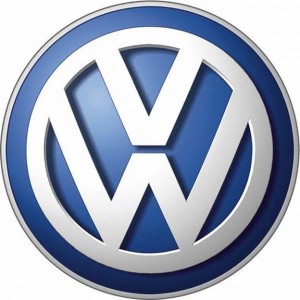Press reports in Germany indicated the U.S. Environmental Protection Agency found three unapproved software programs in 3.0-liter diesel engines made for Volkswagen by Audi.
German weekly Bild am Sonntag reported the software allowed the turbocharged direct injection, or TDI, engines used in Audi’s Q7, Porsche’s Cayenne and VW’s Touareg models to shut down emissions control systems after about 22 minutes.
Volkswagen has admitted it cheated on U.S. diesel emissions tests for years and said in June it would spend as much as $15.3 billion buying back vehicles from consumers. However, the settlement did not cover roughly 85,000 larger 3.0 liter Audi, Porsche and VW vehicles that emitted less pollution than 2.0-liter vehicles, but were also fitted with illegal emissions-control equipment.
Audi and Volkswagen notified U.S. authorities about these vehicles last year but a deal covering the 3.0-liter vehicles, which are among the most profitable sold by the VW group, could be months away.
The report underscores the continuing legal challenges VW faces, which will invariably drain resources from the company’s research and development efforts at a time when the technology behind electric vehicle and autonomous vehicles are developing quickly, according to a new report by BMI Research.
(Italian government latest to fine Volkswagen over diesels. For more, Click Here.)
“We believe that the uncertainty surrounding the company due to the emissions scandal and the resulting share price drop will limit the company’s ability to raise funds via share issuance or a share sale,” BMI said.
“The company’s share price dropped from a high of $215.36 in August 2015, to as low as $140.33 in August 2016,” the report said. “Not only will this price drop reduce the return from selling shares, it will also drag on demand for the company’s shares as investors remain wary due to the uncertainty surrounding the future legal costs the company may incur and its plans to raise the necessary funds to cover the expenses.
“Further exacerbating the negative investor sentiment towards VWAG shares is the company’s decision to slash dividend payments in its 2015 annual report. We believe that mounting legal cost pressures as a result of the emissions scandal will act as a hurdle for the company’s strategy with regard to innovation and the transformation towards new technology and electric vehicles.”
(Click Here for details about VW’s surprise leap to the top of global auto sales.)
The VW Group’s plans call for an internal cost-cutting drive to help fund the necessary research and development, according to Matthias Muller, who has said the company has to save $8.8 billion by 2025 and raises profit margins to 8% this year from 6% last year to pay for research and development.
“All this comes at a time when the company is facing rising legal fees, slowing sales of its VW brand, and declining profit, which will drag on its ability to achieve this target,” BMI observed.
As far as the legal challenges from emission-cheating scandal go, the South Korean government to suspend the sales of 80 models of various VW vehicles will weigh on the company’s bottom line. While Volkswagen sales in South Korea account for a very small portion of VWAG sales globally, it is a key market for its premium Audi and Bentley brands.
Furthermore, the $16 million fine imposed on the group by the government, coupled with the impending decision by the company to take legal action, will add pressure to the growing global legal expenses resulting from the emissions scandal which still plagues the company, BMI said.
(VW Q2 earnings hammered by diesel scandal. Click Here for the full story.)
In addition to the challenges faced in South Korea, there is a growing risk of law suits globally. One example is the announcement by the German state of Bavaria that it intends to sue Volkswagen Group for losses by its state pension fund, following the sharp decline in the value of VW’s shares, BMI said.


Should VW execs be facing racketeering charges?